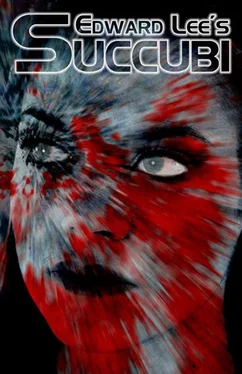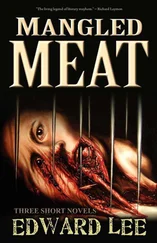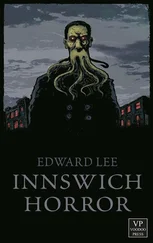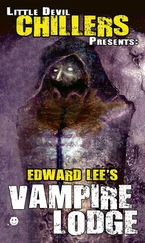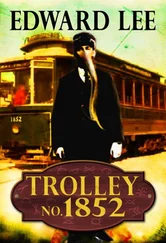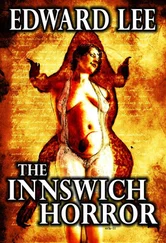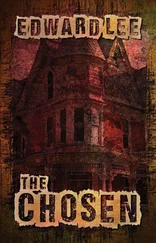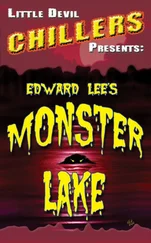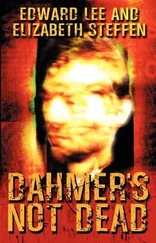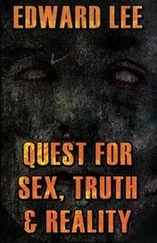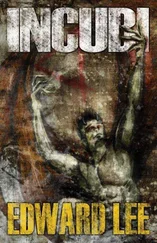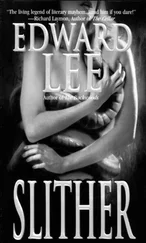The town looked equally sullen. It looked deserted. Martin idled the Mustang down Pickman Avenue, Lockwood’s main drag. Almost everything here had been built a hundred years ago, refurbished since. A little brick fire station, the police station alongside. A general store, a diner called Joe’s. Most of the economy here was agricultural; the men either worked the vast corn and soybean fields to the south, marketed farm supplies, or serviced tractors. Lockwood had always seemed to do better than the surrounding townships. There was no poverty and, hence, no drugs and no crime. It was almost idyllic.
Almost, Ann thought. Lockwood was isolated, remote. At times it seemed untouched by the modem world, and that’s the way everyone wanted it. There was a curfew for minors, and town ordinances against package liquor sales. The only place a person could get a drink in this town was a dusty little tavern called the Crossroads. Kids had a dress code for school. More ordinances prohibited late night convenience stores, bowling alleys, arcades, and the like. “As a community, we must strive to resist debilitating attractions for our youth,” her mother had proposed before the town council years and years ago. Motels were prohibited too. Outsiders were not encouraged to visit.
“What’s the matter?” Martin asked.
Ann’s thoughts had been adrift. “Just…thinking,” she answered. Did she blame her parents for her constrained childhood, or the town itself? Lockwood seemed to emanate repression. Here it was, early afternoon, and the town looked dead. Kids should be out playing, housewives should be out shopping. There should be traffic, activity, etc., typical things of any small town. But there was none of that here.
“Where is everybody?” Melanie asked. “Aren’t the kids here on spring break too?”
“In Lockwood?” Martin chuckled. “Who knows? They probably have a town ordinance now against children.”
“It’s not that bad,” Ann said. “Just different.”
“Yeah, different. I’m surprised we haven’t passed a horse and buggy.”
The end of Pickman Avenue formed the large town square. Here was the old, steepled white church that Ann had never attended, and the town hall. Beyond that, all that could be seen was the vast rise of the forest belt, which kept the town dark till mid-afternoon.
“Oh, yeah, and there’s probably an ordinance against sunlight too,” Martin said. “This place has always been creepy, but never like this.”
Martin was right. They hadn’t seen a single person yet.
He turned left onto Lockhaven Road. The residential section extended from here past the old middle school. The town possessed fewer than five hundred people; dark, narrow streets led past modest homes, mostly one floor, which all seemed to be white with dark trim, and big trees in the yards. More trees lined the streets, adding to the queer darkness. The entire town seemed to brood.
“Which one is it?” Martin asked.
“Turn here,” she instructed. It had been so long even Ann wasn’t sure. The narrow road seemed to rise. “Ah, here,” Martin said. He turned onto Blake Court and stopped.
“Jesus.”
The long cul de sac was filled with cars.
“Looks like half the town’s here,” Melanie said.
They’re all at the house, Ann thought without knowing why. But what would bring so many people here?
A long driveway led to the Slavik house. It was the largest house in town, large and gabled on a big lot full of trees. Very little of the house’s original brick could be seen, covered by sheets of crawling ivy.
Martin pulled up next to her parents’ old Fleetwood and parked. He sat a minute, peering out, and stubbed his cigarette in the ashtray.
“This is bizarre,” he said.
Melanie leaned forward. “Mom, how come—”
“I don’t know, honey,” she said, but she was thinking, Maybe Dad’s already died. What else could explain the crowd of vehicles?
The cast of Martin’s face indicated he had similar thoughts. Instead, he just said, “Let’s go.”
Walking up, Ann thought the rest of the town must be jealous. The house was old but well kept. The spacious yard and topiary were meticulously maintained. Ann knew her father had never made lots of money working farmland, and her mother accepted no pay for running the town council. The town had incorporated itself years ago; the farmland to the south was not privately but collectively owned, which was common in these parts. The profits were shared, yet Ann couldn’t imagine that they were significant. How did this town maintain itself? Moreover, how did her parents? All towns had their share of poor and wealthy. Everybody here seemed to be the same, save for the Slaviks.
The silence weighed her down. They approached the house, saying nothing, and ludicrously paused at the porticoed front door. Nothing could be heard within, yet she saw subtle movements past the narrow windows. Like people standing around.
Like a funeral reception, she had to think.
Her hand locked in midair. That door knocker always rasped her eye—a small oval of dull, old brass in the shape of a face. But the face was bereft of features, save for two, wide empty eyes. There was no mouth, no nose, no jawline really—just the eyes.
That’s what bothered her—it always had. The eyes, though ominous, seemed somehow to welcome her.
«« — »»
“I’m sure you’ve all heard about it by now,” Dr. Greene supposed. He sat at his big ugly gray metal desk, eating a Chunky. He had very short blond hair and was built like a fireplug, which never quite helped him look the part. He was chief of Psychiatric Services at the state mental hospital. A welter of psychiatric paraphernalia filled his office: Smith, Klein, and French calendars, Stelazine paperweights, a desk set advertising Lily pharmaceuticals. He drank juice out of a Haldol coffee cup and wrote with a pen that read “Xanax (alprazolam) 0.5mg tabs. Use it first!” He got all the stuff free from drug reps. These guys were like car salesmen, hyping themselves over the competition. Large orders often promised paid vacations. Dr. Greene didn’t want vacations in return for providing drugs that frequently turned human beings into docile dayroom potatoes. But he did like the pens and coffee cups. “Serious elopement yesterday,” he said.
Dr. Harold sat down. “How many?”
“Two.”
“Not bad.”
“Not good,” Greene countered. “They killed two people before they even got off the grounds. Today they killed a municipal cop.”
“What are their profiles?”
Dr. Harold, though a successful private practitioner, did free consulting and in patient profile evaluation on the side. Many private doctors did this as a gesture of professional goodwill. The state hospitals were overcrowded and understaffed, some to the breaking point. Dr. Harold offered his services a few hours per week to allow state staff to tend to more essential duties.
Greene took another bite of his Chunky. “First we got Richard ‘Duke’ Belluxi. Thirty five years old, I.Q. 113. Stage sociopath. They got him on a rapo fifteen years ago, but we know he did a lot more. We Amytaled the son of a bitch and figure he killed at least half a dozen people in his late teens, all sexually motivated. LH levels out the roof, this guy would fuck a brick wall if there was a hole in it. He did about ten years here before we gave him a roam status.”
“Why isn’t he in prison?”
Greene laughed without smiling. “He Gansered his way in. Made up a detailed delusion and stuck to it, then started doing the word salad for the court. You know how the judges are in this state. The guy raped a sixteen year old girl and cut off her arms for kicks, and the judge makes Belluxi look like the victim. Tell that to the girl—she lived. Anyway, we were stuck with him. A decade went by and he never caused much trouble, just mouthing off, a few confrontations with some techs. ACLU lawyer said he was going to sue the hospital if we didn’t give Belluxi some GB status. Said we were violating the guy’s rights. The way I see it his rights went out the window when he chopped off that girl’s arms, but you know how that is. Bet those grapeheads would sing a different tune if it was their daughters that Belluxi was cutting up.”
Читать дальше
